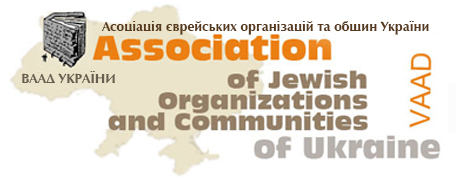Yuri Leiderman. An Open Letter on the Ukrainian Revolution in the Russian Language
original article:
http://www.ua-today.com/modules/myarticles/article_storyid_62078.html
or https://www.facebook.com/aleksandr.roytburd/posts/10152212261801894
--------------------------------------
As a Jew, I am simply embarrassed when a certain Mr. Kernes allows himself to direct openly insulting remarks at Ukraine's history and at the residents of particular regions which he "doesn't like". By that, I think, he is spitting in all of our faces.
An Open Letter
Dear friends,
Living in Berlin and trying to discuss the events in Ukraine with my acquaintances—Russians, Germans, etc.—I constantly encounter the same misconception. It refers to the alleged split of Ukraine along language and ethnic lines in the current struggle. I'd like to try to rebut this opinion at the very least at my own example.
I was born and raised in a Jewish family in Odessa. Thanks to my high school education, I understand the Ukrainian language pretty well, but my native language is, of course, Russian. And this is the language I am immeasurably proud of and which I would not exchange for any other language. In the same way, I am proud of my Jewish background. And in the same way, like all Odessites, I am fervently in love with my city and consider it to be the best city in the world.
However, neither of this precludes me from feeling myself a Ukrainian and from loving Ukraine as my motherland. On the contrary. Odessa's acacia trees, our much defamed "Chernomorets" [Odessa's Premier League football club] whose fan I am in the third generation, the vineyards of Karolino-Bugaz, the old Genoese fortress on the shore of the Dniester estuary—all of this is Ukraine, too.
However, I must say, as a Jew, I am simply embarrassed when a certain Mr. Kernes allows himself to direct openly insulting remarks at Ukraine's history and at the residents of particular regions which he "doesn't like". By that, I think, he is spitting in all of our faces.
I am aware of the attitudes of my acquaintances who live in Odessa—artists, writers, art critics—that is, of the "creative intelligentsia". These people are of different ethnic backgrounds—Russians, Ukrainians, Jews. The majority of them are in favor of independent European Ukraine, against the incumbent authorities, in favor of Maidan. Not all of them—let's be objective. But, again, this is not defined by their background. One of my closest friends there, for instance, is a diehard opponent of "Ukrainization", although he is an ethnic Ukrainian, and Ukrainian was the native language in his family.
I myself am harboring a dream of some day returning to Odessa. And I would like to live in a unitary Ukraine, with a single state language—Ukrainian. I am not at all scared of the prospect of being a part of a "language minority".
One's feeling of dignity, it seems to me, does not depend on whether you are a member of a language majority or a minority. And I do not regard the issue of whether the street sign on the street where I grew up will say "ulitsa Pushkinskaya" or "vulytsia Pushkins'ka" as key. Or whether the street corners will sport both kinds of signs. This is something which I'm sure we will easily sort out to mutual satisfaction once Putin and his chauvinistic cohort finally let Ukraine alone.
In my view, a split does exist in Ukraine. But this is not a split between its "Ukrainophone" and "Russophone" parts. It is a split between the old and the new, between truth and falsehood. Between a thinking majority and the philistine, conforming minority. Between those who are ready to take up the challenges of freedom and renewal and those who prefer to entertain nostalgic illusions of "the great cultural community" which has a pithy colloquial name—"Sovok" [the Russian word "dust tray" which shares its first three letters with the term "Soviet" and in this reference to "being Soviet" describes a state of being backward, unsophisticated, and not respectful of human rights and dignity].
P. S. In the last days I have received many responses to my letter. Often, even those people who shared the views expressed in it did not neglect to point out, with irony, that how come the "thinking" people were ever a majority. I don't know, maybe it is wishful thinking on my part. But I think that there are these infrequent moments happening from time to time over the course of humanity's history. They are called a Revolution.
I remember myself standing on the barricades in Moscow in August of 1991. This is when I became convinced, with joy and amazement, that the so-called "crowd", "mob", "rabble" can be so conscientious, so responsible, so unified in purpose. I experienced the same feeling of elation and pride for Egyptians, for human beings, for the light of humanity, three years ago while watching the "Tahrir" documentary.
And I have experienced a double or triple measure of the same feelings when I watched on the Internet-to my shame, I was a mere observer!—as, in the night of December the 10th, thousands of people holding each other's hands and slipping on the ice-crusted asphalt, in the -15°C frost, were fighting off the SWAT forces' attack. I don't want to offend anybody. But I don't think there is any flag in the world that is currently flying higher than our flag, the yellow-blue one. And nowhere else in the world is a national anthem being sung with such courage and hope as we are singing it. In Ukrainian.
Yuriy Leyderman
Artist
Born in 1963 in Odessa, Yuriy Leyderman is an artist, poet, and critic. A graduate of the Moscow Institute of Chemistry and Technology, he was one of the founders of the art group "The 'Medicinal Hermeneutics' Inspection" and participated in the group's activities until 1991. He participated in exhibitions of "Apt. Art" [a movement of modern art exhibitions taking place in apartments] and the Avant-Gardists' Club (CLAVA). Leyderman's poetry, prose, and essays were published in magazines such as "The Print Place", "Mirror", "Cinema Art", in the "TextOnly" Internet magazine, etc.
NEW BALANCE


.png)

